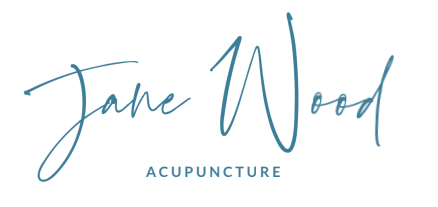Easing Anxiety
/Can acupuncture help?
Anxiety is the scourge of the modern world. Technology meant to help us throws us into a pace of life that we just weren’t designed for; 24/7 access via electronic devices, and constant pressure to look good and be seen to have exciting lives leave us ever vulnerable to criticism, be it real or perceived.
Manifesting as feelings of nervousness, apprehension, fear, or tension, along with a racing heart and inability to relax, anxiety is now one of the top ten causes of disability worldwide. Over 60 million people in the EU are troubled by anxiety, affecting both their social and work life.
Treatment usually involves therapy or drugs. Anxiolytics (drugs to reduce anxiety), such as Benzodiazepine enhance the effects chemical messengers in the brain, to make us feel more relaxed, both mentally and physically. But these psychoactive drugs can also be problematic, they can have side effects, can lead to dependency, and are often not a long-term solution for chronic anxiety.
Looking at high quality trials Portuguese researchers recently found that acupuncture is as effective as other treatments such as drugs and psychotherapy for the treatment of anxiety, but without the side effects.
It might be that’s all you need to know, but if you’d like to get more into the nitty-gritty of anxiety, what it is, and how it can be treated, read on............
What is Anxiety?
Anxiety is a mental health problem, one of the most common in the world. Sometimes there’s a perception that mental health problems aren’t “real”, yet they are as real as a broken arm or leg. It’s just that they’re more about chemistry than physical structures.
Scientists have looked at the biochemistry of anxiety, and found these markers
· 5-hydroxytryptamine (5-HT), a group of serotonin receptors found in the nervous system.
· ACTH (adrenocorticotrophic hormone),
· Corticosteroid (CS)
· Prolactin
Pharmacological treatments, acupuncture, and combined acupuncture and pharmaceuticals were found to effectively reduce anxiety by changing these biological markers. Acupuncture had fewer side effects and, in the combined group, it also helped to regulate e the side effects of the drugs.
Standard Treatment
The standard treatment for anxiety is either therapy or drugs. According to the NHS, therapy is usually offered first, and looking at the side effects listed on their website for commonly used drugs, it’s not hard to see why.
Selective serotonin reuptake inhibitors (SSRIs)
The first treatment offered after therapy, is usually a type of antidepressant called. SSRI’s. These work by increasing serotonin levels within the brain, and include:
sertraline
escitalopram
paroxetine
They take a while to start working but can be taken long-term, unlike some other drugs.
Common side effects include:
feeling agitated
feeling or being sick
indigestion
diarrhoea or constipation
loss of appetite and weight loss
dizziness
blurred vision
dry mouth
excessive sweating
headaches
problems sleeping (insomnia) or drowsiness
low sex drive
difficulty achieving orgasm
in men, difficulty obtaining or maintaining an erection (erectile dysfunction)
Serotonin and noradrenaline reuptake inhibitors (SNRIs)
If SSRIs don't help, you may be offered another sort of antidepressant known as a serotonin and noradrenaline reuptake inhibitor (SNRI).
This type of medicine increases the amount of serotonin and noradrenaline in your brain.
Examples of SNRIs you may be prescribed include:
venlafaxine
duloxetine
Common side effects of SNRIs include:
feeling sick
headaches
drowsiness
dizziness
dry mouth
constipation
insomnia
sweating
They can also increase your blood pressure.
Pregabalin
If SSRIs and SNRIs aren't suitable for you, you may be offered pregabalin.
This is a medication known as an anticonvulsant, which is used to treat conditions such as epilepsy, but it's also been found to be beneficial in treating anxiety.
Side effects of pregabalin can include:
drowsiness
dizziness
increased appetite and weight gain
blurred vision
headaches
dry mouth
vertigo
Benzodiazepines
A fast-acting type of sedative that may sometimes be used during a particularly severe period of anxiety. The NHS say benzodiazepines are usually for short term use, 2 to 4 weeks, because they are addictive, and they lose effectiveness after that time.
If you're prescribed a benzodiazepine, it'll usually be diazepam.
Side effects of benzodiazepines can include:
drowsiness
difficulty concentrating
headaches
vertigo
an uncontrollable shake or tremble in part of the body (tremor)
low sex drive
If you are taking medication for anxiety, please consult your doctor if you would like to stop or reduce your dose.
How to Help Yourself
Harvard Medical School offer good advice for helping to ease anxiety:
· Eat a well-balanced diet with plenty of fruit and veg
· Eat regular meals to keep blood sugar levels balanced
· Stop smoking; it can raise your blood pressure and heart rate, mimicking the signs of anxiety.
· Keep caffeine levels low
· Reduce sugar intake
· Eat foods rich in zinc, like whole grains, oysters, kale, broccoli, legumes, and nuts
Eat foods rich in magnesium: fish, avocado, dark leafy greens
· Eat foods rich in vitamin B, such as asparagus, leafy greens, meat, and avocado
· Eat foods rich in omega-3 fatty acids, for example, wild caught salmon
· Eat probiotic-rich foods like kefir, yogurt, and other fermented foods.
And meditate. Meditation has been shown to relieve psychological stress like anxiety and depression.
Can Acupuncture Help?
So, back to our Portuguese academics. They looked at clinical trials, the highest quality research, from across the world. These compared acupuncture to standard drug treatment, no treatment and sham (fake) acupuncture. They found that acupuncture is as effective as drug use in treating anxiety, without the side effects.
And finally……
One for the acupuncturists. Perhaps unsurprisingly, the researchers advise using these three point in any treatment for anxiety; Ht7, Pc6, and Yintang.
References
Acupuncture and electroacupuncture for anxiety disorders: A systematic review of the clinical research, Amorim et. al

